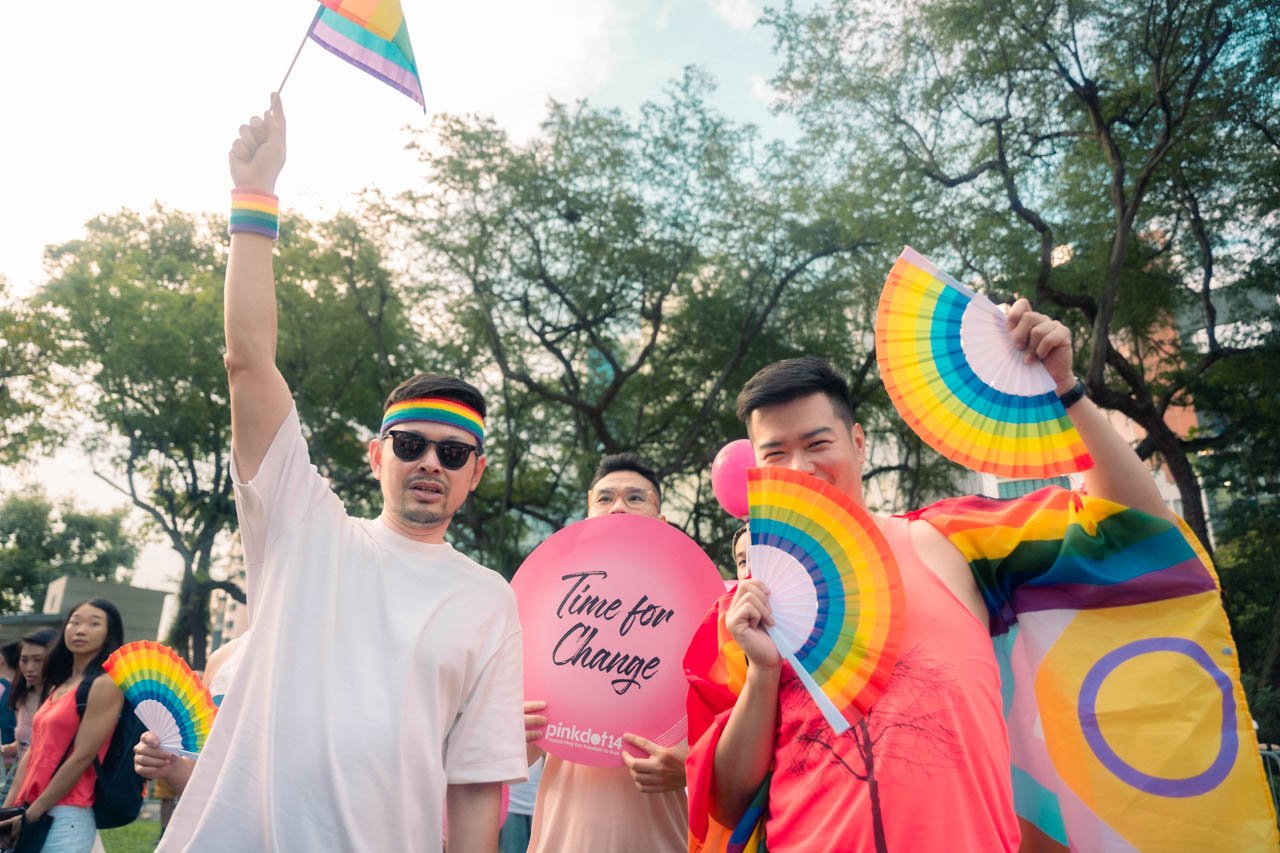Top Image: Stephanie Lee / Rice File Photo
It took some time, yes, but we got here.
“The government will repeal Section 377A and decriminalise sex between men,” Prime Minister Lee Hsien Loong said of the colonial-era law in his televised National Day Rally 2022 speech.
ADVERTISEMENT
“I believe this is the right thing to do and something that Singaporeans will accept.”
Remind me, what exactly is Section 377A again?
Section 377A was introduced to Singapore’s penal code in the middle of 1938. It reads: “Any male person who, in public or private, commits, or abets the commission of, or procures or attempts to procure the commission by any male person of, any act of gross indecency with another male person.”
Simply put, 377A criminalises sex between two consenting male adults. It is generally believed that the law derives from the British government’s desire to ‘safeguard’ public morality by prohibiting homosexual activity in the Straits Settlements.
Still, documents recently declassified by the British government revealed that this was not the case. 377A was, in fact, motivated by a scandal in which prominent white European men were discovered to have slept with Asian male prostitutes. This drove the Straits Settlement government into a panic because it saw the scandal—of the white man succumbing to the native boy—as a threat to its colonial rule.
The punishment? Imprisonment for a term which may extend to 2 years. The law in question stayed in place but was not actively enforced, the government insists.
What’s the big issue if it wasn’t enforced in the first place?
As long as Section 377A remains, its constitutional and legal implications continue to haunt the local LGBTQ+ community.
Pink Dot SG said: “The acknowledgement that Section 377A is unenforceable only in the prosecutorial sense is cold comfort. Section 377A’s real impact lies in how it perpetuates discrimination across every aspect of life: at home, in schools, in the workplace, in our media, and even access to vital services like healthcare.”
Why did it take so long to repeal?
Politics, we suppose. But the public fight to repeal 377A has gone on for over a decade.
In 2007, a petition was launched, calling for the repeal of 377A—but so was an opposing petition that called for it to be retained. Former Nominated Member of Parliament (NMP) Siew Kum Hong presented the petition to Parliament, arguing that private consensual acts between adults should not be treated as criminal.
The Ministry of Home Affairs remained unmoved about repealing, stating that “we should let the situation evolve”. PM Lee acknowledged the contributions the LGBTQ+ community have made to society but highlighted that social norms in Singapore remain largely on the heteronormative side. It was better for the issue to remain as status quo.
Over the next decade since then, 377A has be en challenged repeatedly in court on grounds of it being “unconstitutional”. All three were unsuccessful, even after India’s Supreme Court decriminalised sex between two people of the same sex in 2018. In the same year, The Ready4Repeal movement was launched to keep the campaign going.
It got clearer in the subsequent years that sentiments towards gay relationships have evolved. Behind the scenes, through closed-door consultations with the community, the government gathered data on how to respond to changing attitudes.
ADVERTISEMENT
“Increased opposition towards Section 377A, support for same-sex parents and a willingness to speak up against unfairness towards the LGBTQ+ community point to a growing acceptance of same-sex relationships among Singaporeans,” market research company Ipsos found in a study released earlier this year.
So the movement succeeded! What’s the catch?
Understandably, the government will want to appease the significant portion of conservative voting Singaporeans.
“We need to find the right way to reconcile and accommodate both the traditional mores of our society and the aspiration of gay Singaporeans to be respected and accepted,” PM Lee said in his speech.
The Constitution will be amended to protect the definition of marriage by making it a prerogative of Parliament. This will be done to avoid potential legal challenges to its definition in Singapore, i.e. there shall be no push for same-sex marriages on a constitutional basis.
Minister of Home Affairs and Law K. Shanmugam clarified that there still is the possibility for same-sex marriage to be pushed forth—it just needs to be done via Parliament, and not through the Judiciary.
“[Political parties] will have to put that in their manifesto, fight elections, get a majority and then change the definition of marriage,” he mentioned in an interview with The Straits Times and Lianhe Zaobao.
Though 377A will be repealed, media portrayals will continue to remain firmly on the conservative side. The Ministry of Communications and Information (MCI) announced that LGBTQ+ media content will still continue to “warrant higher age ratings”.
“Prevailing norms and values” will be upheld, PM Lee says. There is also no intention to change national policies on public housing, education, and adoption rules for the LGBTQ+ community.
How did people react?
Celebrations aplenty on the ground! Though not without some hesitance.
“The true impact of repeal will be determined by how the people of Singapore respond to it, and treat each other, in the days and months to come,” Pink Dot noted in its statement.
“It must be accompanied by the rejection of hate, of stigma, of discrimination, of erasure.”
The LGBTQ+ community and its allies highlight that there’s still a long way to go towards equality. The concern revolves around the fact that other things remain entrenched.
ADVERTISEMENT
Preventing the definition of marriage from being legally challenged—a signal of LGBTQ+ people as unequal citizens—is disappointing and undermines secularity, they affirm.
Nonetheless, the repeal is still a “hard-won victory” and a “historical milestone” for Singapore, says Pink Dot.
Religious groups have concerns too, calling for religious and “traditional family values” to be preserved. Reverend Yang Tuck Yoong, the chairman of the Alliance of Pentecostal & Charismatic Churches of Singapore, had strong thoughts, calling the repeal “extremely regrettable”.
The Workers’ Party remained neutral, though a statement indicates that they will participate in the debate in Parliament on the repeal and the proposed change to Constitution regarding marriage.
So what now?
It’s been an exhausting ride. Symbolically, repealing 377A is a good thing. Even having the prime minister publicly address the LGBTQ+ community on such a national level is a tiny step, but a step nonetheless. It certainly took a while (many would say it’s far too late) for a colonial-era law from the time of The Great Depression to be taken down.
With the government’s continued emphasis on the nuclear heterosexual family unit as a bedrock of Singapore society, it seemed unlikely for them to introduce anything drastic for the conservative voting populace.
Opening the doors to same-sex marriages; conferring LGBTQ+ couples the same housing rights as their heterosexual counterparts—these are too startling for the majority in society. Can we still be surprised by the middle-ground approach we’re seeing right now?
Even if the government’s change in stance was reactionary, it signals that advocacy and activism can work here if given enough time and groundswell. The road to repeal was paved by the blood, sweat and tears of those who sacrificed their time, money and personal reputation to move the needle. And yet, the path is still long.






